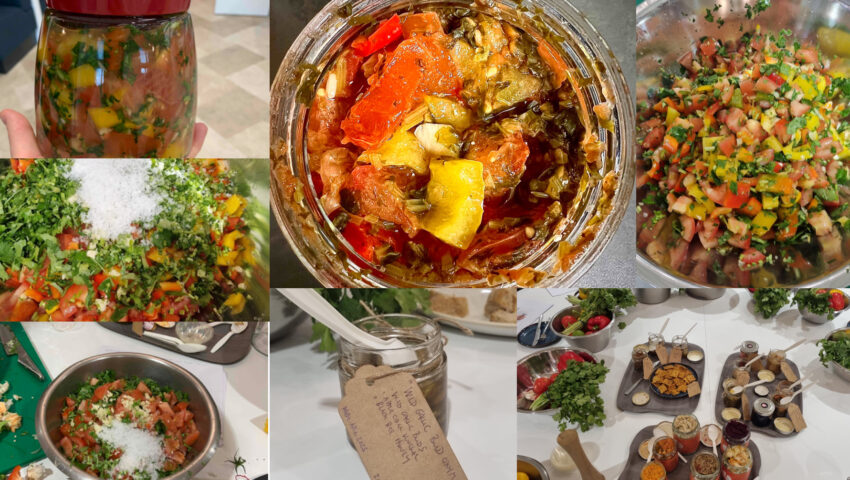Blogs
Got guts? here is why you should look after yours…

This title is misleading. We all have guts. In fact, we had a mouth, an oesophagus, a stomach, small and large intestines, and (forgive me) an anus. Together, they make up our digestive track. Located in our large intestine and measuring up to 15 feet, if our guts digest, then everything is fine? Why do we need to talk about it? Is there a benefit to understanding more about our gut health.
While we are still exploring our relationship with our guts, we are not completely in the dark. Our guts are home to 100 trillion micro-organisms. We host thousands of species of minute bacteria, viruses, fungi and parasites. Together they form our very own unique ecosystem, our microbiota. Before we are born, we inherit our microbiota, but as we grow our microbiota changes. As we try different food and drink, we expose ourselves to a wider variety of bacteria. Some exposures can harm and alter the composition of our our microbiota. The trick is to keep our microbiota balanced, nourished and fighting fit.
Why is our gut microbiome so important?
The health of our microbiome influences our experience of everyday life. We have a symbiotic relationship in which we both benefit. As we feed our microbiota they breakdown insoluble dietary fibre. They help us absorb essential vitamins and protect us from harmful micro-organisms. 70% of our immune defence mechanisms are in our gut. Good gut bacteria can also help to decrease inflammation. To keep our immune system in tip-top condition, we need a healthy gut.
We even need a heathy, functional gut to help regulate our moods. Home to both ‘good’ and ‘bad’ bacteria, we reap the benefits from the ‘good’ bacteria. Friendly bacteria such as Lactobacillus and Bifidobacterium, produce neurotransmitters like serotonin. Our digestive tract allows metabolic processes to create short-chain fatty acids. These fatty-acids help support our cognitive health. We have around 100 million nerve cells lining our intestinal tracts. This is our “enteric nervous system” and it tells our brain how we are feeling.
Can we influence our gut microbiota?
I am sure we have all heard the phrase “You are what you eat”, and for our guts this is true to some extent. We fuel our guts, and in return, they nourish and allow our good bacteria to thrive. Our dietary habits, the way we cook and eat food, and environmental factors all play a part. The more ‘good’ bacteria we consume, the more we can influence our guts to be healthier and happier.
Influence is the key word here. We cannot transform our genetics, change the way we are born or our age. Lifestyle changes can influence our gut bacteria to work with us, not against.
Can we boost our gut health?
I am a 90’s child, so gut health was not on the curriculum. It’s thanks to the pandemic’s obsession with sourdough, and my partner’s love of bread, that I’ve heard of it. As sourdough starters took pride and place in our kitchen, and I became curious. What is gut health and is consuming fermented foods and drinks beneficial?
In short, yes. Humans have been fermenting foods for generations. Fermentation was common in preserving fruits and vegetables for the winter. Little did our ancestors know that it was an excellent way to promote gut health. Fermentation occurs as ‘good’ gut bacteria multiply and produce lactic acid. This bacterium is on the skins of fruits and vegetables, and in dairy products. Remove the oxygen and sprinkle a little salt, and the bacteria become probiotics. Fermented foods are a rich source of probiotics. When we consume probiotics, they mix with our gut microbiota, giving our gut health a helping hand.
How we’re helping your guts?
Fresh, healthy food is a pinnacle of our Foodies values. We pride ourselves on using seasonal ingredients. Food should be good for us, and good the planet. Fermentation is a fantastic way to boost gut health and reduce food waste. BM has a wonderful way of promoting healthy, tasty food, and if fermentation can benefit us, then we had to try it!
BM teamed up with Jo Webster to offer our chefs a fermentation workshop. Her journey into the lost art of fermentation is magical. She is a qualified medical herbalist and nutritionist, and a specialist of gut health and fermentation. Devoted to finding sustainable ways to support gut health, Jo’s focus is accessibility. Little did we know, we were about to find out how accessible fermented foods are.
I sat around the table, and wondered what on earth was going on. Covered in jars and bottles, all sorts of veggies and juices were fermenting before me. A funky, lactic smell was in the air. She handed me a shot of fermented beetroot and garlic (it’s punchy), and we dived into the world of ferments.
Fermentation is a fascinating process, and I never knew it was so easy. After a few days, fermentation adds another layer of flavour. It’s punchy and lactic, and with so many benefits, it’s got our attention. As foodies, we had to try! The Jerusalem artichoke ferments were incredible. The miso tofu was sensational. Her celeriac and mustard ferment made me do a happy dance.
No workshop would be complete without something to take home. Making Jo’s 3-day fermented salsa showed me how affordable and accessible fermentation is. If we can find easy and sustainable ways to promote gut health, I’m in. The world of fermentation is at our chefs’ feet.
How can we improve our gut health?
Our Nutritionist, Charlotte Newman, offers her tips to boost your gut health.
- Eat a diet high in fibre. Fibre is one of your gut microbes’ favourite types of nutrients. We should be aiming to consume 30g of fibre daily. In the UK, we fall short with the average person only consuming 19g a day! Fibre is essential for gut health. It helps to regulate digestion, and feeds our friendly gut bacteria. It also helps maintain a healthy balance of bacteria in the gut. A great way to ensure you are getting enough fibre is to aim to consume at least 30 plants a week. Studies have found that those who consume 30 plus plant-based foods have a more diverse gut microbiota!
- Find ways to incorporate more probiotics into your diet. Probiotics are in fermented foods such as yoghurt, kefir, sauerkraut, kimchi, and miso. They can play an important role in maintaining a healthy digestive system. They promote friendly gut bacteria, improve nutrient absorption, and boost immune functions.
- Don’t forget prebiotic-rich foods. Found in foods such as garlic, onions, leeks, asparagus, bananas, and whole grains. Prebiotics are types of fibre that are key to promoting gut health, as they feed our friendly bacteria.
- Try to avoid processed and high-fat foods. Processed food can alter the makeup of our gut bacteria. They can reduce diversity and increase harmful bacteria. This imbalance can lead to inflammation, digestive problems, and other health issues. Instead, opt for lean protein sources such as chicken, fish, and beans. Choose delicious and healthy fats such as oily fish, avocados, nuts, and seeds.
- Stay hydrated. Crucial for maintaining a healthy gut, helps move food through the digestive tract. It also promotes regularity, support nutrient absorption, and reduce inflammation. The UK recommendation is to drink at least 6-8 glasses of water per day. More, if you are active or in a hotter environment. A good tip to increase your water intake is to try and flavour your water with different fruit and herbs. Or if you are like me and completely forget, add a little alarm on your phone to remind you to drink water.




